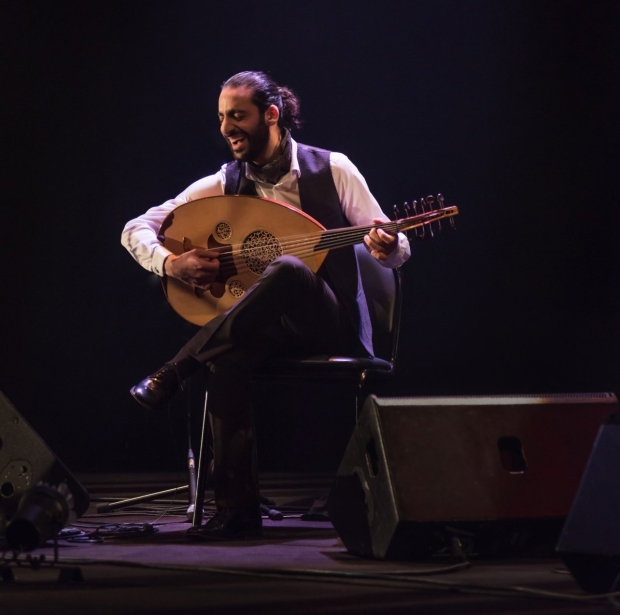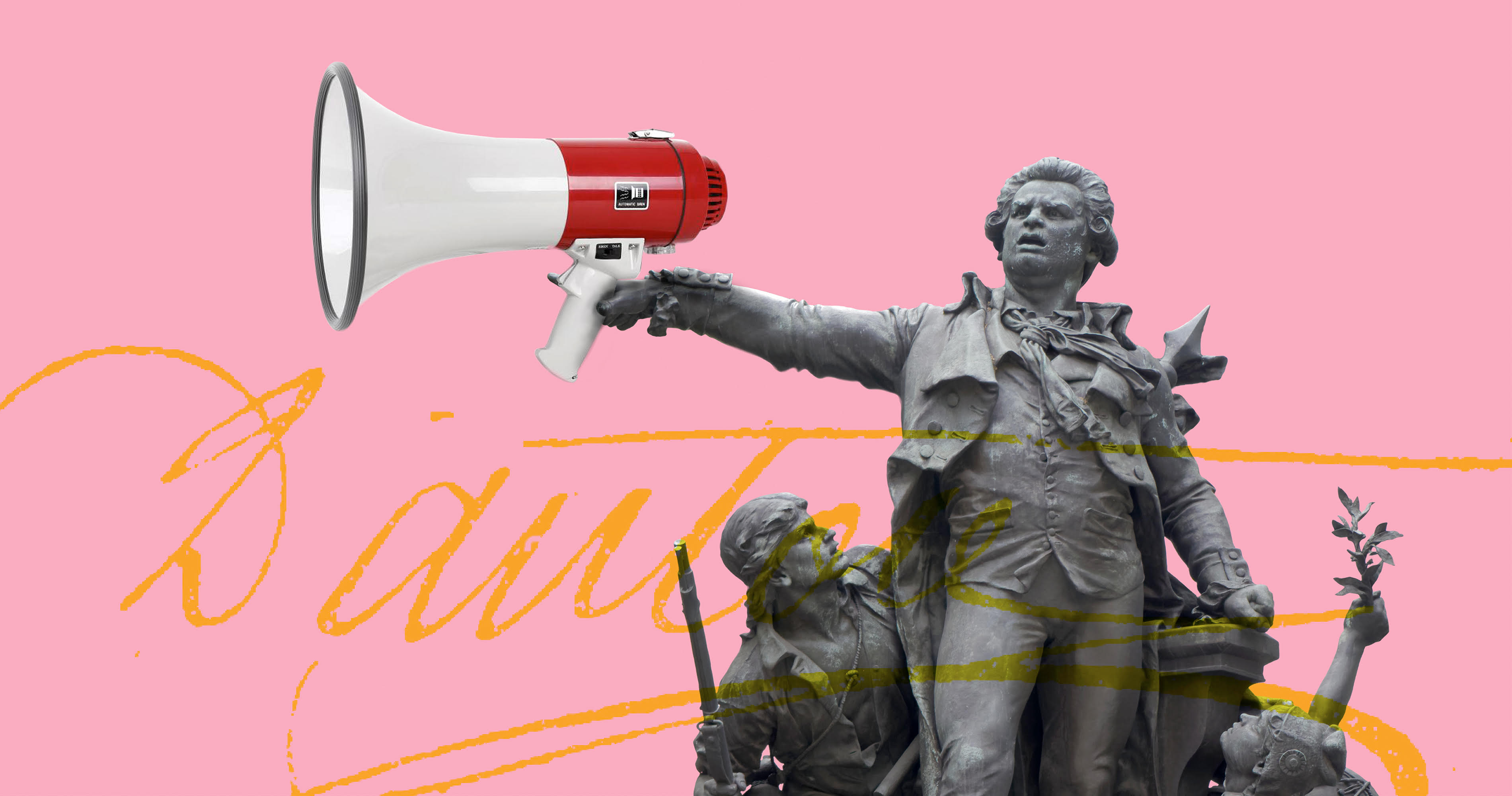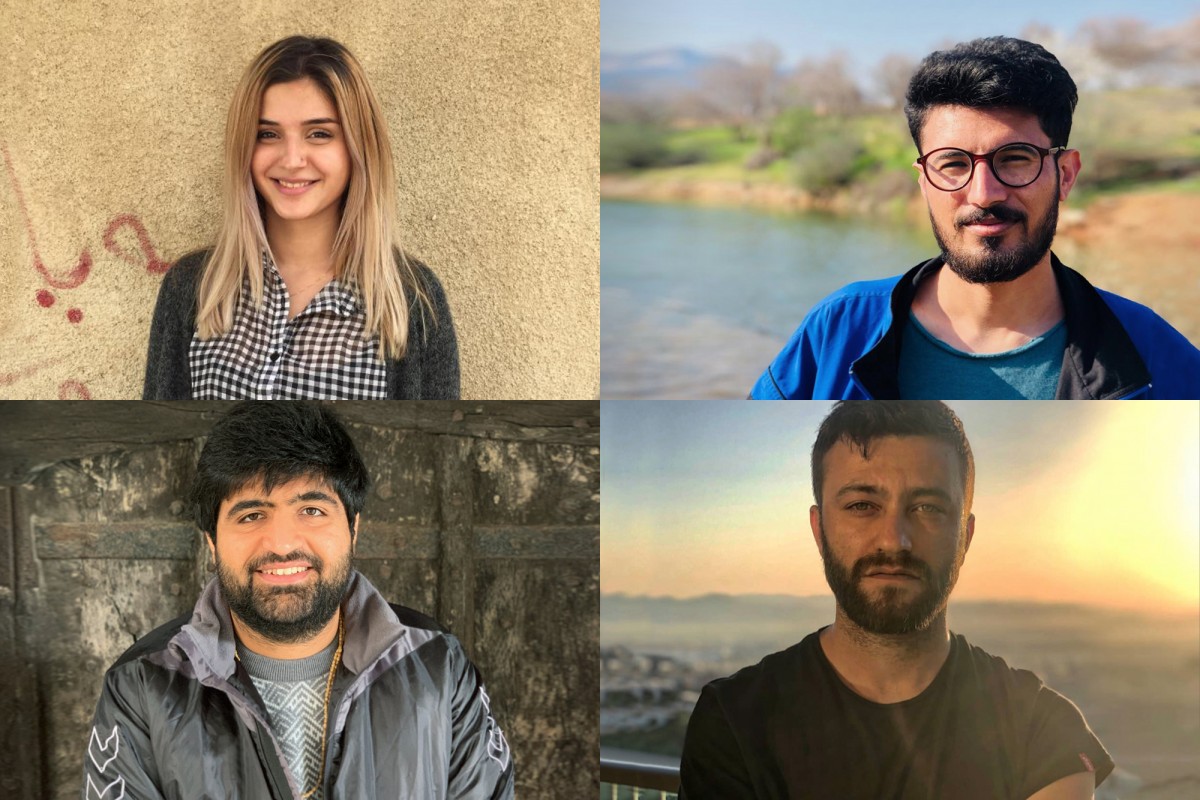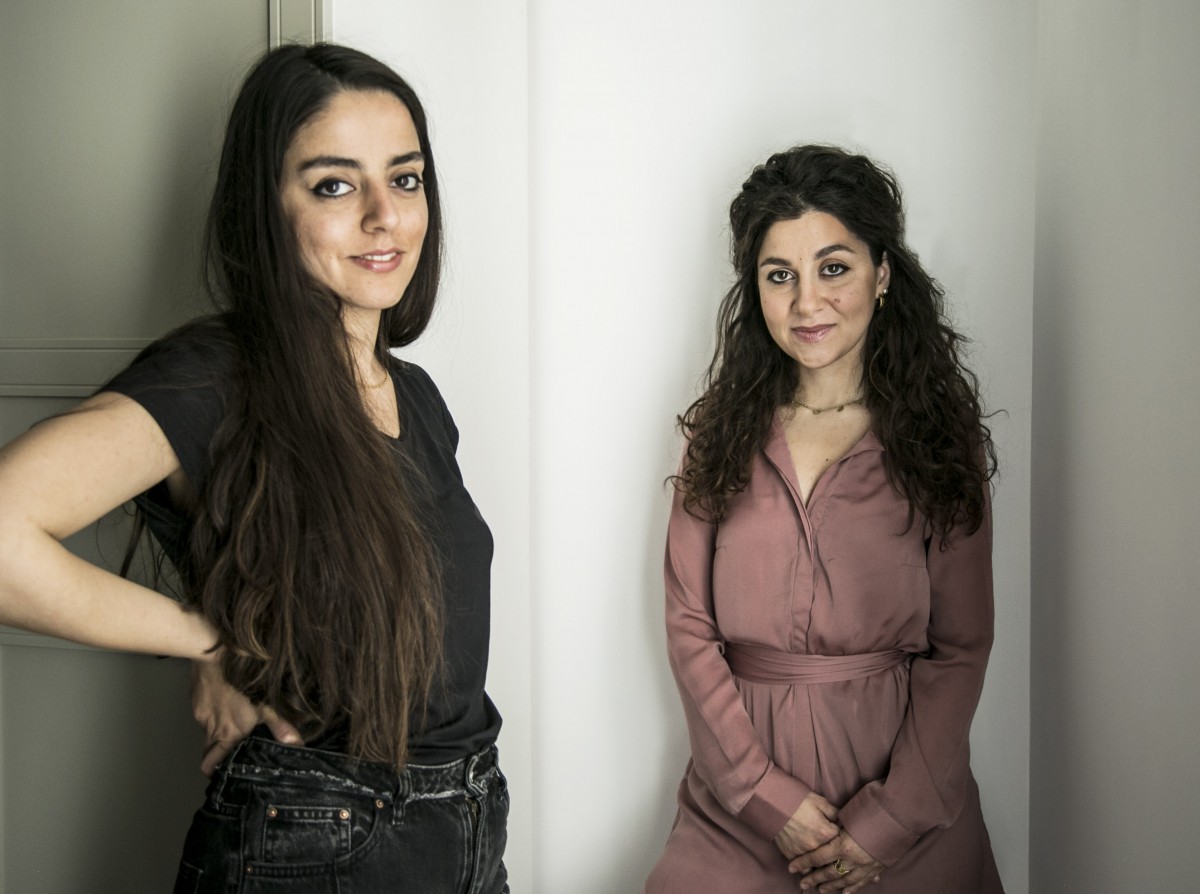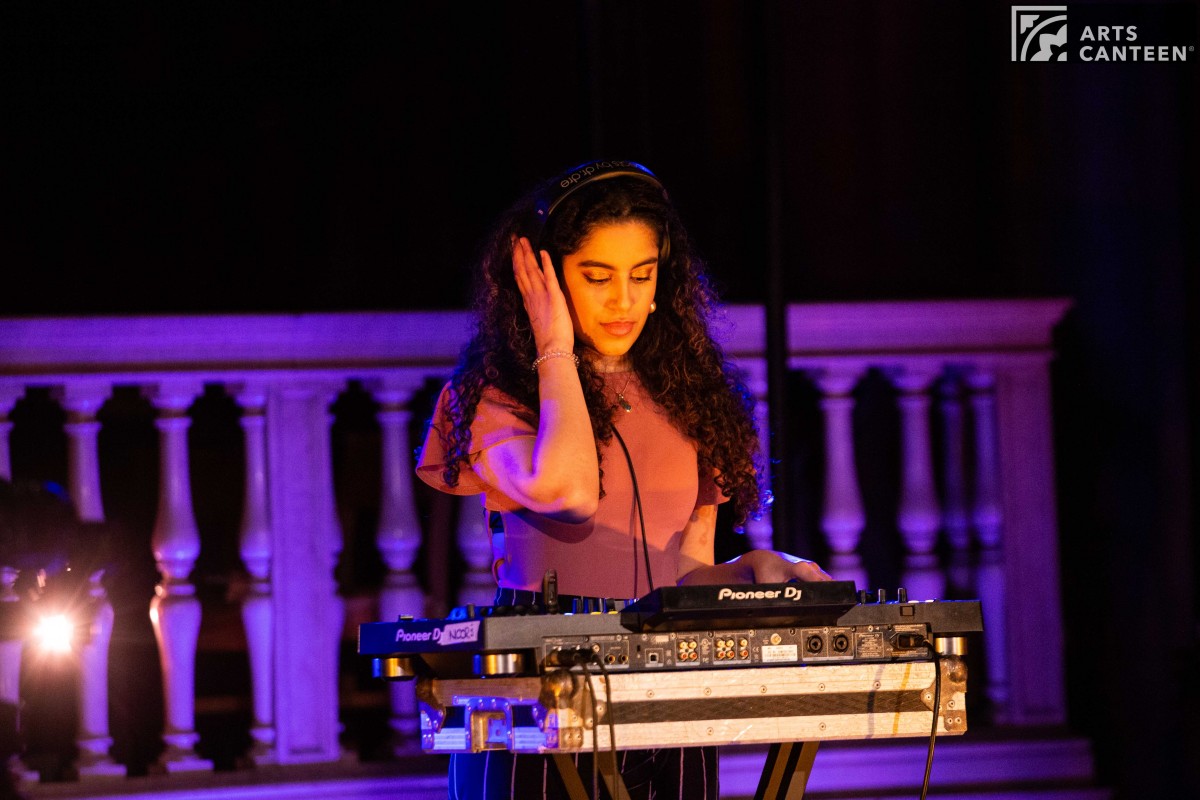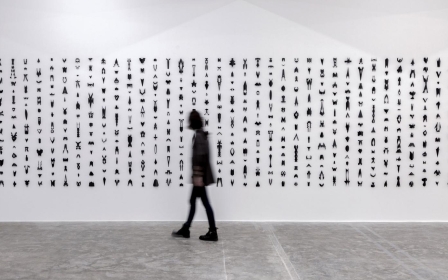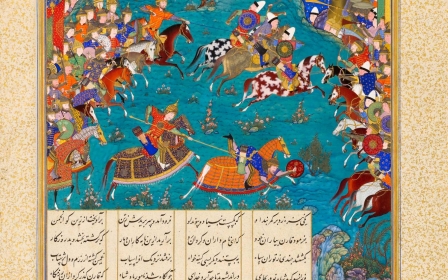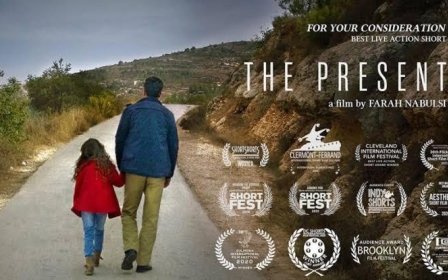Shubbak festival: Celebrating a decade of contemporary Arab culture
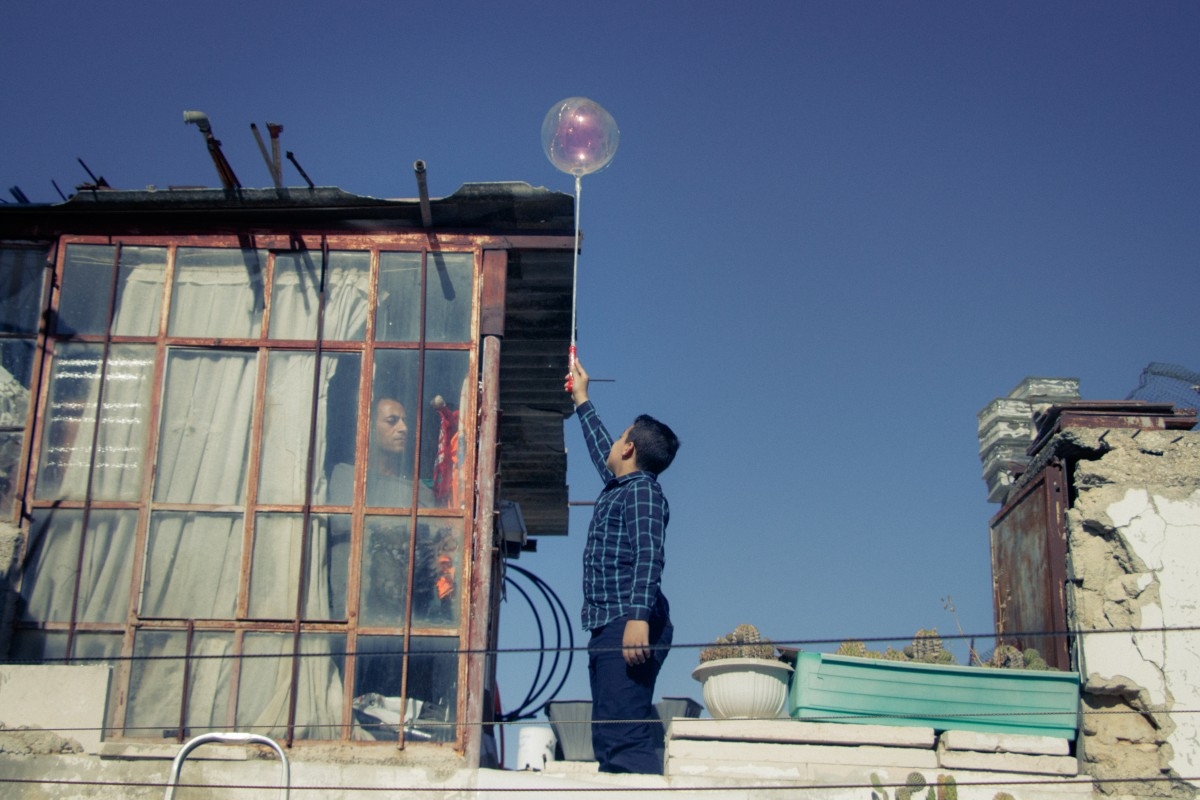
When the mayor’s office in London launched the Shubbak Festival on contemporary Arab culture in 2011, it was meant to be a one-off affair, the finale of a three-part series. Prior festivals featured India and China - in 2007 and 2008 respectively - and were organised to honour and toast London's connectedness to new, emerging, economic nations.
But the urgency of the 2011 Arab uprisings coinciding with Shubbak’s launch galvanised the organisers to rethink a longer and more in-depth cultural engagement with the Arab world, one that would reflect the enormous political and societal movements transforming the region.
Today Shubbak, which means window in Arabic, is the UK’s largest biennial festival of contemporary Arab culture. In the decade since its launch, it has served as a catalyst for several unsung, emerging artists now globally recognised. Among such performers are the Palestinian-Jordanian electronic music group 47Soul, who Shubbak invited for their first performance in 2013.
In 2015, the festival featured Samer Saem Eldahr, a Syrian electronic music producer and video artist known as Hello Psychaleppo when he was still emerging. That same year, Lebanese conceptual artist and musician Raed Yassin displayed his hand-painted glazed porcelain Chinese vase series that was later acquired and displayed by the British Museum.
New MEE newsletter: Jerusalem Dispatch
Sign up to get the latest insights and analysis on Israel-Palestine, alongside Turkey Unpacked and other MEE newsletters
This year’s festival, which launched on 20 June and runs until 17 July, was forced to move largely online because of the coronavirus, like nearly all cultural gatherings in the past year and a half.
Yet, the question of cancelling or postponing the festival was not a “serious question”, according to artistic director Eckhard Thiemann.
“We were very determined to find a way to be as active and relevant as possible. This is why we arrived at a hybrid festival where we still have physical events,” Thiemann tells MEE.
One example of the hybrid model is an outdoor audio-guided performance called The Land's Heart is Greater than its Map at the performing arts centre, The Barbican Centre in London, the largest in Europe.
Attendees are guided through a route wearing headphones and listening to scripts where they encounter situations projecting what they see into “a faraway city which cannot be named”, which ultimately culminates in meeting the artist. The small theatre performance will be shown 27 times.
While large in-person congregations have been halted this year, the pandemic has also forced participating artists to work with the festival in more creative ways than before.
From the luxury of a screen, audience members will also be able to watch the talent of artists from the Arab world cross boundaries and explore pressing themes through film screenings, book launches, immersive theatre, dance, literature, and debate across various venues, as well as online.
A Syrian revolutionary classic
The festival’s premiere on 20 June featured The Return of Danton, directed by Omar Elerian, in which a collective of Germany-based Syrian actors rehearse a contemporary adaptation of Georg Buchner’s Danton’s Death, one of the greatest revolutionary works of European theatre, between bickering over line runs and overlong cigarette breaks in the rehearsal room.
Early on, actress Amal Omran, exasperated after having been sidelined from providing input for the show, takes the lead and has the actors improvise their role as rulers of a revolution.
“Imagine you are the ruler of a revolution that’s succeeded,” she proclaims.
Actor Mohamed Alrashi stands up and gives a magnificent speech in eloquent formal Arabic language. Towards the end, he hurls a series of profanities mocking rulers who choke over flowery demagogic language.
“F*&* me and anyone who says this,” he shouts, erupting in laughter.
Initially meant to be shown live, in February 2021, Shubbak decided that the risk for in-person gathering was too large with the coronavirus in full swing. Instead, they professionally filmed the performance of the actors in the Theater an der Ruhr in Mülheim, which sponsors the intercultural theatre lab Collective Ma’louba where The Return of Danton’s playwright Mudar Alhaggi has served as artistic director since 2017.
By the end of April, actors arrived to Mülheim in full lockdown and were able to rehearse while undergoing weekly Covid tests and staying in their actor’s cocoon. The fully-immersed rehearsals amid a lockdown continued over six weeks with no distractions, so “we couldn’t even have a beer afterwards, just work” remarks Elerian.
By the time the play was ready to film, Germany relaxed some lockdown measures and the troupe was allowed to invite a small Covid-tested audience to watch, giving the actors an opportunity to release after long hours of isolated work.
From A Midsummer Night’s Dream to Hamlet, there is a long history of metaplays - plays within plays - in western theatre
In December, they received the optimistic news of a post-pandemic reality on the horizon: the confirmation to tour around Europe. Still, according to Thiemann, “rethinking of the performance as a film was just the right decision for us and the company”.
The play follows a common tendency of writers to be more overtly autobiographical and centring their experience, says director Omar Elerian.
“In The Return of Danton, the character of the director is constantly asking: 'How is Danton? Why Danton’s death?' These are the same questions Mudar [the playwright] was asking himself: 'Why did I decide to work on this German classic?'”
From A Midsummer Night’s Dream to Hamlet, there is a long history of metaplays - plays within plays - in western theatre. Yet this performance reflects further how the artists employ the theatre as a physical and intellectual space to reflect about dynamics of politics, specifically between the writer and the director, between commitments to the homeland and an exile that means moving on.
Indeed, the main conflict in the script revolves around the company director’s insistence on using this adaptation of a German classic to secure funding, while the playwright expresses a desire to write a new play that reflects the everyday lives of Syrian refugees living abroad.
“It felt like a real privilege to be able to work on a play like this that asks quite sophisticated, profound human questions about not only what the western gaze likes to speak about - which is the plight of refugees - and the sense of guilt that the West might or might not have, but actually the situation of artists, intellectuals and regular people that had to be displaced and forced to build a new life,” says Elerian.
The first performance is currently available to stream on demand for free until 17 July.
Bringing Sulaymaniyah home
The festival’s subtitle “contemporary Arab culture” is a contested notion. “The last thing we want to do is define who that is,” Thiemann tells MEE. By bringing in Kurdish poets, the festival disrupted, nuanced and queried the perspective of forced Arabisation, war and diasporic experiences.
In a poetry reading event titled Bringing Images Home, Shubbak hosted four young Kurdish poets from Kashkul, the Center of Arts and Culture based at the American University of Iraq, Sulaymaniyah (AUIS). Sulaymaniyah boasts the epicentre of Iraqi Kurdish culture, with a proud history of live poetry, and was designated as a Unesco City of Literature in 2019.
Across three cities - Sulaymaniyah, London and Dublin - the poets gathered online to recite poetry and each presented an accompanying video poem they made with filmmakers around the world, followed by an audience Q&A.
“Amid dislocation, each of these poets has found and created a sense of home within literature or within image,” Alana Marie Levinson-LaBrosee, a Kurdish to English translator who has lived in Iraq since 2011 and who moderated the talk live in Sulaymaniyah, tells the audience.
The evening began with a poem by Alka Aziz entitled, Reflections Away from War, which was written during the Islamic State invasion of Mosul and Kobane in 2014. At the core of the poetry recitations is the nuance of language rooted in the traumatic historical reality of Kurds in Iraq today. The audience questions probed the process of language when writing, since some of the poets wrote in languages different than their native Kurdish, such as English or Arabic.
For Aziz, writing and thinking in English is comfortable, a language she can hone in on, unlike Arabic which was more of a way of survival, or Kurdish which was necessary. Yet the poetry she writes is far from her comfort zone.
“It's from the perspective of an outsider who is close to the war zone and whose only real contribution is outrage and performative social media activism,” she tells MEE.
The second part of her poem begins:
We praise you. We idolize you. We are all Peshmerga. We are all Kobane. We sit in our air-conditioned living rooms, drinking tea and making inappropriate jokes, and a wave of sadness hits us as we watch the latest news. It’s a wave: at times it hits forceful and fast, at other times, slow, more gradual. Either way, a wave: it passes. But we are all Peshmerga.
For Bryar Bajalan, a PhD student in Arabic and Islamic Studies at the University of Exeter, Arabic was also forced upon him as a Kurd growing up in Baghdad during the Saddam Hussein era.
'Literature is a safe way to express the same feeling without fearing retribution'
- Hawre Khalid, Kurdish poet
His father would return from working at a shoe factory and hand him diwans, or books, of Arabic poetry from Mutannabi Street, a street renowned over the centuries for housing bookstores of Arab culture. He read pre-modern Arabic poetry voraciously as a child because his asthma prevented him from going out in the streets to play with other kids.
“Poetry was my tool to survive in face of what happened. Instead of developing any hate or any kind of resentment towards Arabic, I enjoyed Arabic literature and I loved it,” he tells the audience.
Bajalan recited two poems - with silence and Kurdish words interspersed in between - and showed a film titled Non Absorbable. The experimental film includes his voice with insights about estrangement from home. At one point, he asks: “How to tell the fisherman, hey fisherman you are no longer the most patient person in this town anymore?”
Hawre Khalid, a photojournalist who has covered myriad conflict zones in the past 10 years, says that “photography for him is the language he is most comfortable in”. But by shifting to poetry, he was able to evade political censorship because most of the politicians he knows, never read poetry, and thus “literature is a safe way to express the same feeling without fearing retribution”.
Khalid, like the other poets, has been displaced several times and speaks several tongues. Yet for him, the language that allows him to be most playful is Kurdish Sorani, which is different from the more widely spoken Kurmanji dialect. He read his poem Can I Swim in Sorani:
I have a homeland for sale as well
It comes with a lifetime guarantee of corruption, electricity shortage, femicide, civil war, hate, irresponsibility, disturbance,
nonsensical films, and the bullshitting of mullahs, intellectuals as well as politicians;
of war, death, protest, unpaid salaries, lack of freedom, suicide, running to Europe through
smuggling due to the sorrows caused by political parties.
Zedan Xelef, a translator and Master’s student in creative writing at San Francisco State University, read a poem entitled What is an IDP Camp? It was written in Arabic, which he says he learned “before learning how to write in my native language”. He recently wrote a book of poetry A Barcode Scanner, published by Kashkul Books (2020) and translated by Bajalan in collaboration with poet and translator David Shook.
The event was harrowing and uplifting at the same time. It provided a glimpse into the oft untold literary richness of Sulaymaniyah and the diversity of Kurdish culture, language and history - with the gloomy political reality of all the trauma associated with war and upheaval.
Political romance
In her music video Political Romance (Romansiyyeh Siyesiyyeh), Lebanese musician Michelle Keserwany lies on the grass wearing a white dress with the sound of birds chirping in the background. “I dream of someone who can make me fly,” she says in Arabic. A few moments later, her sister Noel, a fellow musician and co-director, adds: “To be honest, I wanted this to be a love song, but they didn’t let me.”
The video stems from a desire both the sisters shared to write a lighthearted romantic song. “We wanted to write a love song, but you don’t have the time and luxury and mental space to really think about life in Lebanon and our art represents that. We do political things although we would have loved to do something else, but we can’t,” says Michelle.
The 33-year-old musician is also a director and screenwriter, and co-wrote the heartbreaking Cannes Film Festival prized movie Capernaum (2018) along with celebrated director Nadine Labaki and Jihad Hojeily.
Her latest music video, Political Romance, provides a scathing satirical critique of the socio-economic collapse and political oppression in Lebanon, an homage to the victims of the 4 August, 2020 port explosion.
Michelle Keserwany’s musical career took off accidentally in 2010, when friends recorded on their phones a satirical video she made titled Jagal el-Usek directed against the patriarchy and specifically the “too cool for school, tough, guy”.
One year later, it went viral, with over one million views. From there, she collaborated with her sister Noel. In January 2012, they decided to ride camels to downtown Beirut, an upmarket area reconstructed after the civil war in the 1990s known for its ostentatious designer stores that only the affluent can access.
“We said why not take a camel and ride it downtown. Why should they say no? We are citizens and we can’t afford a car,” she says, alluding to their 2012 music video that was shot by friends on a phone.
The sister duet have since released songs annually whenever they have felt the need to express a certain injustice that reflects their opinion and those of many around them.
For their performance at Shubbak festival on 8 July, the sibling duet will host an interactive live Q&A with a spoken-word component
The music video of Political Romance includes footage from Megaphone, an alternative media platform, and shots from Basecamp, a coalition of four local non-profits offering disaster relief services to houses that were destroyed in the explosion.
In the most uncanny of ways, the video was written before the blast, but the dark, foreboding lyrics - including “My country’s leaders poked my eyes out! They killed our friends, shattered the country over our heads and after pointing at each other they ended up accusing me” - might as well have been written in its aftermath.
“There is the spirit of the times - something in the air that you can capture when you feel something deeply that all people are feeling,” Michelle Keserwany says.
For their performance at Shubbak festival scheduled on 8 July, the sibling duet will host an interactive live Q&A with a spoken-word component.
“We don’t do these events too often, so now we have this chance to get this interaction with people that we long for,” Michelle tells MEE.
The talk is part of a five-part series running from 4 July to 14 July titled When the World Closed sponsored by Fadaa (Space), a new initiative by artists and curators Khalid al-Baih and Hadeel Eltayeb to “broker fresh relationships between creatives and spaces in different locations” and open up possibilities again since the outbreak of Covid-19.
The series welcomes the Keserwany sisters in addition to artists from five countries: Sudan, Gaza and the West Bank, Doha and Morocco to be livestreamed globally. In addition to the Q&A on 8 July, Lebanese dancer Wafa’a Celine Halawi will show a video dance of a new work.
To give artists total agency, the festival’s themes are never defined. Each year, however, certain topics and artists are more present than others.
For this year’s hybrid festival, the theme of wanting a better life - perhaps a revisit of the demands of the Arab Spring uprisings that first swept the region a decade ago and whose repercussions continue to ripple today - comes most strongly through.
From a play revisiting the Syrian revolution and refugeeism to raw poetry from and about Iraq’s war-torn Kurds to a satirical music video wittily criticising the incompetent Lebanese government, each of the highlighted artists echoes sentiments for an interconnected, decentralised world in which borders are torn and freedom and justice prevail.
The Shubbak festival is running until 17 July, in London and online
Copyright for author photos: Zedan Xelef (Azad Xidir); Alka Aziz, Hawre Khalid and Bryar Bajalan (Courtesy of Shubbak festival)
Middle East Eye delivers independent and unrivalled coverage and analysis of the Middle East, North Africa and beyond. To learn more about republishing this content and the associated fees, please fill out this form. More about MEE can be found here.


